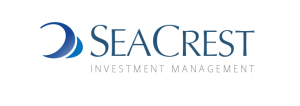For most people, summer is the best time of the year. For investors, it may have been particularly a pleasant one as markets roared ahead. The vibrant health of the overall market and economy during the quarter may have gotten lost due to the news headlines during the last week of September focusing on President Trump presiding over a United Nations meeting, uncertain future of the Deputy Attorney General, a highly divisive Supreme Court nomination and the agreement reached on a bilateral trade deal between the US and Canada.
During the third quarter of 2018, the S&P 500’s total return was up an extraordinary 7.71%, the Dow Jones Industrial Average appreciated 9.63% and the NASDAQ returned 7.41%. On the fixed income front, the iShares iBoxx High Grade Corporate Bond Exchange Traded Fund (ETF ticker: LQD) was up 1.23% while its high yield version, the largest “junk-bond” ETF by assets (ticker: HYG), was up 2.93%. Emerging market equities were one of the few laggards with the representative exchange traded fund, EEM, down 0.95% for the three months.
More interestingly, in late August, the spread between the U.S. 10 year and 2 year Treasuries hit a low of 19 basis points. The last time this spread tightened below that level was in late September 2005, after the S&P 500 was up approximately 50% over the previous two years. The stock market continued to rally an additional 30% over the next 24 months. Of course, we all know what happened in 2007 and 2008. We anticipate ongoing U.S. economic data to remain strong into year end and early 2019 with the Federal Reserve Bank continuing to tighten for the foreseeable future to mitigate inflation risks. As interest rates move higher and fixed income securities offer competitive returns, the U.S. equities market valuation is likely to be repriced… lower! Although we have been calling for such traditional financial dynamics to manifest themselves for some time, they have yet to materialize. Nevertheless, we remain steadfast in our belief.
The emerging markets sell off and significant underperformance was triggered by the crisis in Turkey. The concern for a contagion was immediately felt in the developing world with their currencies, fixed income markets and equities markets, all declining. Although Argentina suffered quite a bit, we anticipate higher volatility in countries such as Brazil and South Africa, given their upcoming Presidential elections. Technically, the MSCI Emerging Market/Developed Market equity ratio is continuing to maintain its decline below key support levels from the lows seen during the last two years. This suggests that further emerging market underperformance is likely to continue into the fourth quarter. A rising U.S. Dollar, for the most part, also remains a negative for developing market equities. In developed Europe, we think that Brexit and a distressed Italian economy will dominate European headlines. Brexit negotiations are on course to enter a decisive phase in the next few months. We expect (and hope) for a soft Brexit, but the path to get there is likely to involve a considerable amount of political stress. In Italy, the 2019 budget will have to deliver on electoral promises and fiscal commitments. The alternative is likely to prove quite troublesome for their economic growth.
As always, we remain in search of undervalued assets, urging investor caution about the continued longevity of the nearly ten year long bull market. Stay tuned!!
